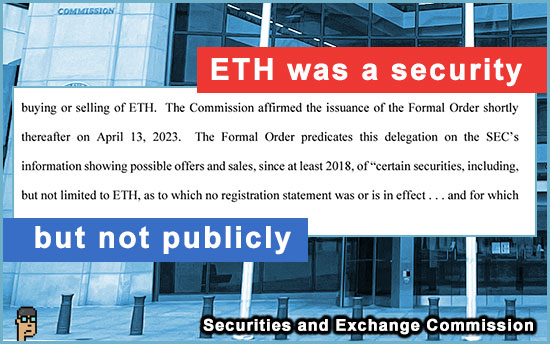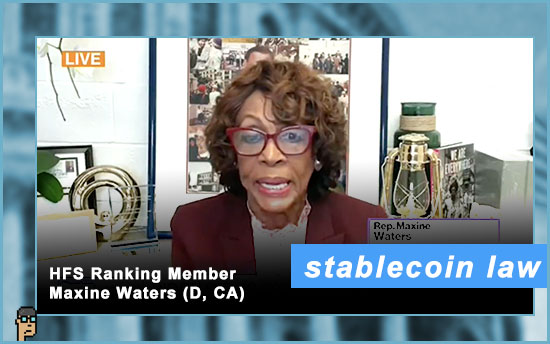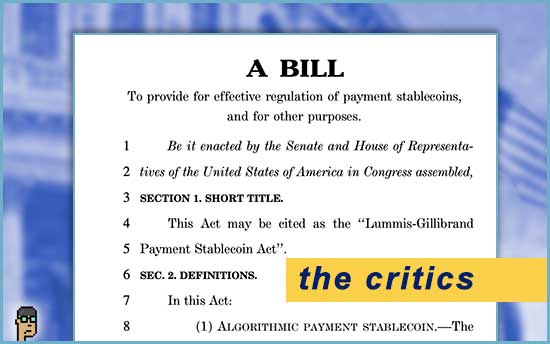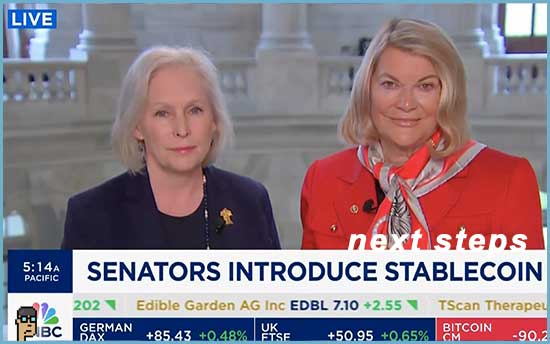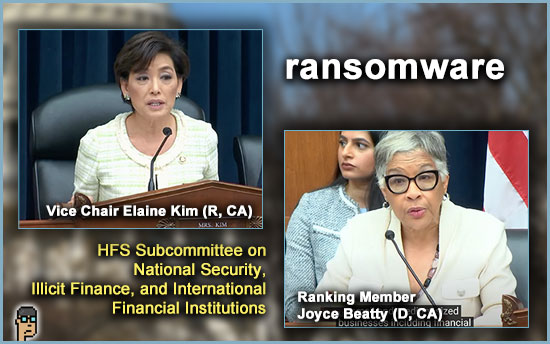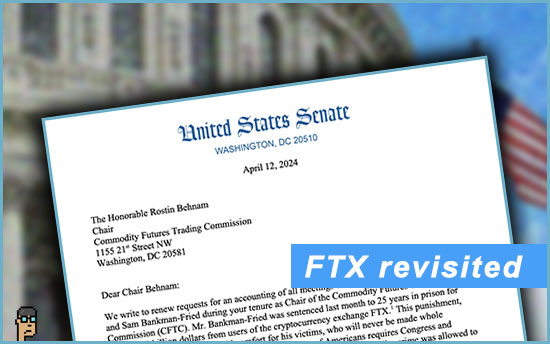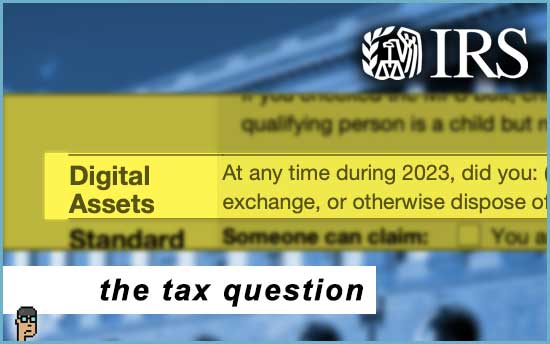ETH is/was a security
On April 18, 2023, while appearing at a House Financial Services (HFS) oversight hearing, Securities and Exchange Commission Chair Gary Gensler waffled as HFS Chair Patrick McHenry tried to get Gensler to say whether Ether was a commodity or security.
Apparently 5 days earlier, on April 13, 2023, SEC’s head of enforcement Gurbir Grewal, who reports to the Chair, said Ether was a security and put it in writing in a “Formal Order.” So says a new, unredacted filing of the Consensys lawsuit against the SEC according to Leo Schwartz at Fortune.
Contradicting itself (given the assertion in the Consensys unredacted brief) even further, the SEC let Ether futures “go live” in October 2023.
House Majority Whip Tom Emmer (R, MN) reacted to the news last night on X saying, “This regulatory dishonesty is reprehensible – it’s tainting our great capital markets, harming investors, and threatening U.S. global leadership.” Next step, a Congressional letter -and a hearing?
more tips:
-
- Consensys Software Inc. v. Gensler et al – Justia.com
what you should know: Chair Gensler’s lie of omission took place just 6 months after the FTX implosion -an event which steered the Biden Administration toward crystallizing an anti-crypto position. Continue reading “SEC Said ETH Was A Security In 2023; Stablecoin Bill In FAA Reauthorization Mix”

